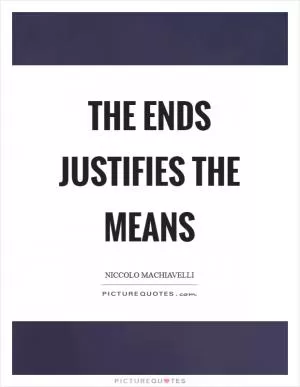In conclusion, the arms of others either fall from your back, or they weigh you down, or they bind you fast

In conclusion, the arms of others either fall from your back, or they weigh you down, or they bind you fast
Niccolò Machiavelli, the renowned Italian philosopher and political theorist, is often quoted for his profound insights into human nature and power dynamics. One of his most famous quotes, "In conclusion, the arms of others either fall from your back, or they weigh you down, or they bind you fast," encapsulates the essence of his teachings on leadership and the use of force.Machiavelli believed that a ruler must be willing to use force and arms to maintain power and control. However, he also understood the dangers of relying too heavily on the arms of others. In his seminal work, "The Prince," Machiavelli warns against trusting mercenaries and foreign armies to protect and defend a ruler's interests. He argues that relying on the arms of others can lead to betrayal, weakness, and ultimately, the loss of power.
The first part of the quote, "the arms of others either fall from your back," suggests that those who rely on external forces for protection may find themselves abandoned in times of need. Mercenaries and foreign armies are motivated by self-interest and may not always remain loyal to their employer. When the arms of others fall from your back, you are left vulnerable and exposed to threats from within and without.
The second part of the quote, "or they weigh you down," highlights the burden that comes with relying on the arms of others. Maintaining a standing army or hiring mercenaries can be costly and drain valuable resources from the state. Additionally, the presence of foreign troops can create resentment and unrest among the population, leading to further instability and discontent.
The last part of the quote, "or they bind you fast," underscores the potential for external forces to exert control and influence over a ruler. By relying on the arms of others, a leader may become beholden to their interests and agendas, compromising their autonomy and ability to govern effectively.












 Friendship Quotes
Friendship Quotes Love Quotes
Love Quotes Life Quotes
Life Quotes Funny Quotes
Funny Quotes Motivational Quotes
Motivational Quotes Inspirational Quotes
Inspirational Quotes